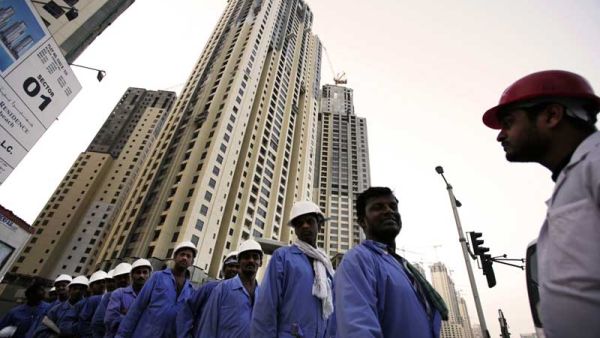Many illegal expatriates have returned to Jeddah’s streets to ply their trade barely three months into government’s crackdown on undocumented workers.
Arab News saw many expatriates on the streets Wednesday selling fruit and vegetables and washing cars.
“Yes, we’ve been hearing about arrests and deportation for months now but none of us has seen this happen,” said Ali Abdul Qader, a Somali car cleaner in Bawadi district. “We are not bothered about being arrested and deported. All of us clean cars on the busy King Fahd Street in Bawadi.”
Ubaid Chakkittaparambil, an Indian worker, said he and 19 other workers were held at a deportation center. “After spending two months inside the center we were let out and now have nowhere to go.”
He said the Saudi authorities could not deport him because he has a legal case pending. “But I want to be arrested and deported,” he said.
Arab News encountered Yemeni painters and Egyptian plumbers along Prince Miteb Street in Safa district, Pakistani laborers in Rawdah Street in Faisaliyah district, Sudanese cleaners at the Kilo 7 bridge on old Makkah Road, and Indian and Sri Lankan workers wandering around in Ruwais and Khalidia districts.
There were also many Ethiopians on the streets still working without documentation. They said they do not intend to go home like many thousands of their compatriots.
Yemeni street vendors were also seen selling vegetables in front of several mosques in the city. Many wholesalers told Arab News that several illegal Yemeni traders have been turning up at the central vegetable market to buy stock in bulk.
The winter season has seen many more jobs for plumbers with people needing repairs to their heaters. “Last year we charged SR50 to check water heaters but now we’re charging SR75,” said Esmat Shatta, an Egyptian plumber in Safa district.
Ejab Gul, a Pakistani worker, said many Saudi sponsors forced workers to become illegal because they wanted huge sums of money to rectify their status. “We’re not worried about being arrested and deported, we’re leaving that up to destiny.”
Gul said he and many workers wait from early in the morning until about 4 p.m. for Saudis to pick them up to do various jobs. He is normally paid around SR100. However, over the last 10 days he was only able to get SR75 for one job.
Lapita Mohammed, a Filipino national, said he ran away from his sponsor a while ago and has been trying to get arrested and deported for two months.








